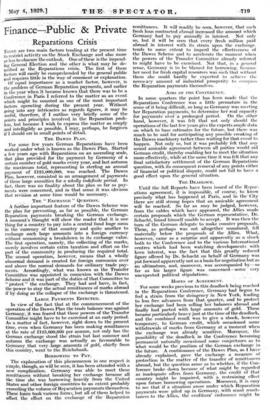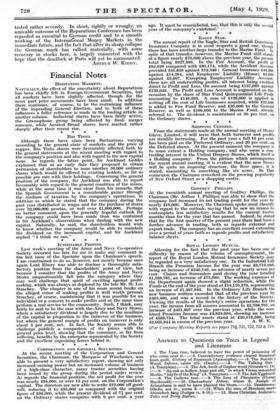HOPES OF AGREEMENT.
- For some weeks previous to this deadlock being reached in the Reparations . Conference, Germany had begun to feel a strain from the stringency in New York, leading to less free advances from that quarter, and to protect her exchange _had been selling her balances abroad and finally had parted with large amounts of gold. These became particularly heavy just at the time of the deadlock, and the combined result was to give a shock, however temporary, to German -credit, which occasioned some withdrawals of marks from Germany at a Mornent when the exchange was already sensitive. Moreover, the possibility of the. deadlock in the Conference becoming permanent naturally occasioned sonic conjectures .as to what would be the position of the German exchange in the future. A continuance of the Dawes Plan, as I have already explained, gave the exchange a measure of protection in the matter of the transfer of remittances abroad, but the question arose as to whether, if thc Con- ference broke down because of what might be regarded as inadequate offers from Germany, the credit of that country might be impaired, with a restraining effect upon future borrowing operations. Moreover, it is easy to see that if a situation arose under which Reparation payments were piled up in Germany, with scant remit- tances to the Allies, the creditors' endurance might be tested rather severely. In short, rightly or wrongly, an amicable outcome of the Reparations Conference has been regarded as essential to German credit and to a smooth working of tht International Money Markets in the immediate future, and the fact that after its shaie collapse the German mark has rallied materially, with some recovery in stocks here, is largely connected with the hope that the deadlock at Paris will yet be surmounted. ARTHUR W. KIDDY.























































 Previous page
Previous page